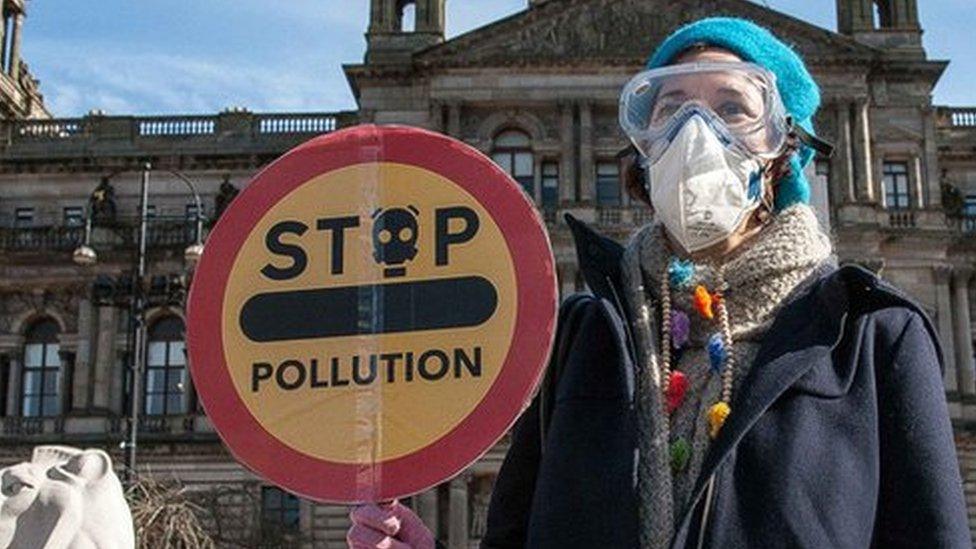Glasgow garage owner to continue low emission zone fight
- Published
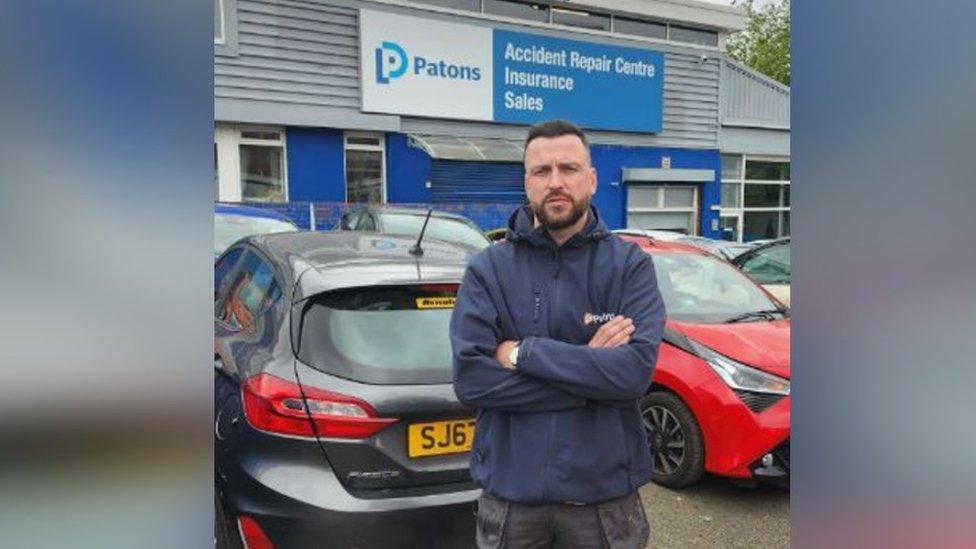
William Paton intends to ask for a judicial review of the council's LEZ policy.
A business owner whose legal bid to delay the introduction of Glasgow's low emission zone failed, has vowed to continue his fight.
William Paton claims the ban on high-polluting vehicles will have a detrimental impact on his garage, which is located 500m inside the zone.
He now plans to take his case to judicial review.
Glasgow City Council said it would "vigorously defend any legal challenge".
The low emission zone (LEZ) came into force in Glasgow city centre on Thursday.
Mr Paton's bid to have the scheme paused was thrown out of the Court of Session on Wednesday.
He told BBC Radio's Good Morning Scotland that, following legal advice, he intends to take the case to a judicial review.
He said he decided to take legal action as the scheme will have a "monumental" impact on the garage - Patons Accident Repair Centre - he runs in Glasgow's Townhead.
"The council haven't mitigated for my loss, they've never said what about a business that doesn't rely on the person making the journey, we rely on the actual vehicle itself coming into us," Mr Paton said.
In general, the new rules mean petrol cars made before 2005 and diesels built before September 2014 will not be allowed in the zone.
Mr Paton claimed the council had not answered questions about whether non-compliant vehicles currently in his garage would be fined when leaving, or whether his non-complaint vehicles could be taken to the garage on a flat-bed truck.
Mr Paton added that about 35% of the vehicles that come into his garage are considered "high-polluting" under the new rules, meaning he could lose a third of his customers.
"We've had any diesel pre-2015, any petrol vehicle pre-2006 completely removed from us a potential customer," he said.
"Its not just us there's other dealerships up here at Townhead that face similar problems," he said.
The LEZ covers most of Glasgow city centre from the M8 motorway to the north and west, the River Clyde to the south, and the Saltmarket/High Street to the east.
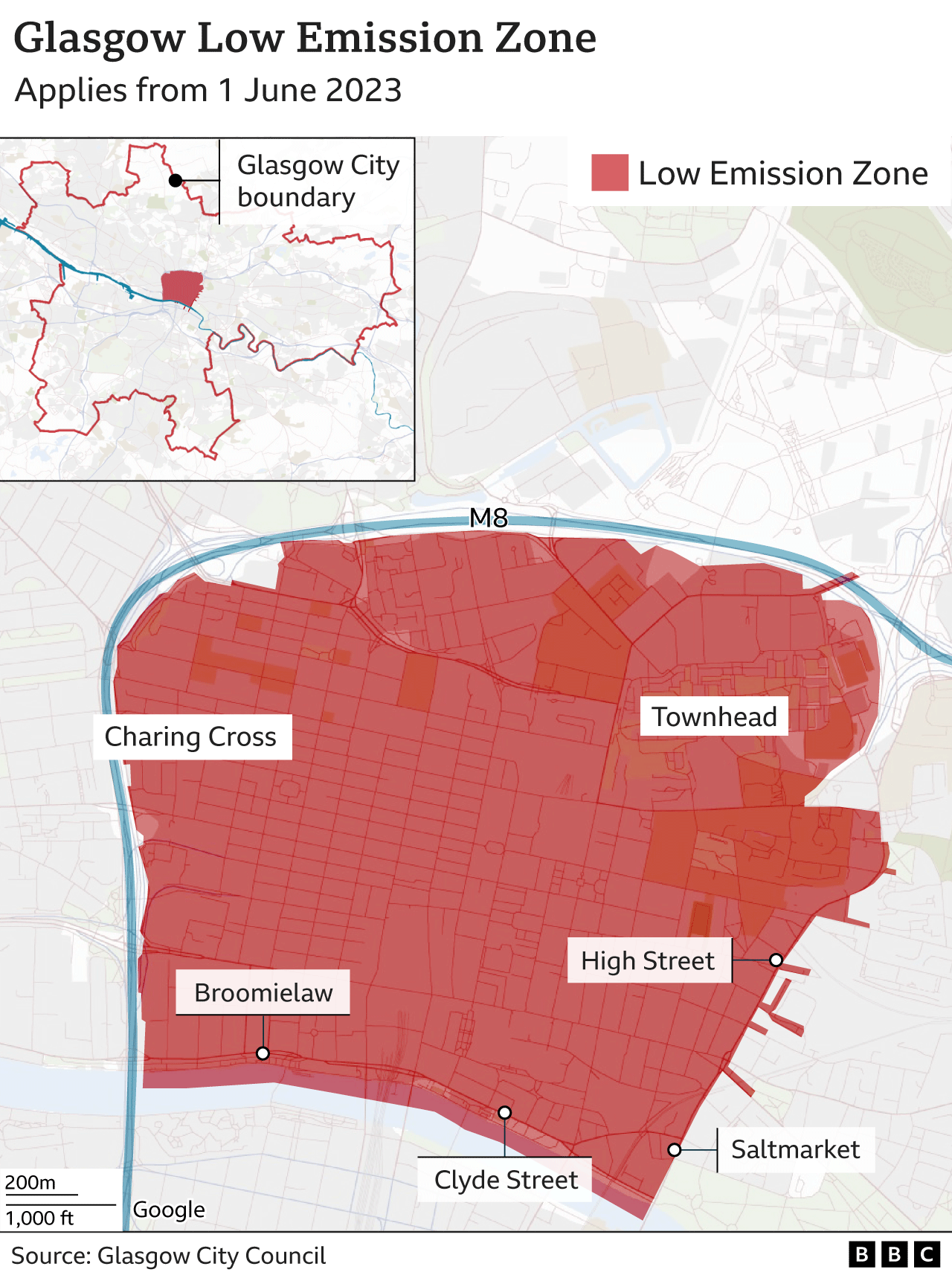
Donald McLeod, of the Night Time Industries Association, said the new regulations were creating a "low economy zone".
"If people make Glasgow why are the council bringing in such punitive a measure to deter visitors," he said.
He said city centre businesses, employees and suppliers should qualify for exemptions.
A LEZ affecting only buses in Glasgow city centre has been in place since 2018.
Blue badge holders, motorbikes, mopeds and emergency vehicles are exempt from the new rules.
And around 700 taxi drivers have also been granted an exemption until June 2024.
A homeless charity which said the zone would affect its ability to feed vulnerable people in the city centre received an exemption on Wednesday evening.
It means Homeless Project Scotland will be able to use their current vehicle for two months while work is carried out on its new LEZ-compliant van.
Allow X content?
This article contains content provided by X. We ask for your permission before anything is loaded, as they may be using cookies and other technologies. You may want to read X’s cookie policy, external and privacy policy, external before accepting. To view this content choose ‘accept and continue’.
Glasgow City Council's climate and transport convenor, councillor Angus Millar, said the low emission zone would ensure "cleaner, more breathable air".
"It's important to stress that around 85-90% of vehicles that currently enter the city centre have already been meeting the standards of the LEZ," he told the BBC.
"There will definitely be some impacts on certain businesses who might have to change the way they operate.
"What I would say is there have been around 500 LEZs or similar initiatives in operation across Europe and we've seen that city centre businesses by and large have actually benefitted from the improvements in air quality."
Related topics
- Published1 June 2023
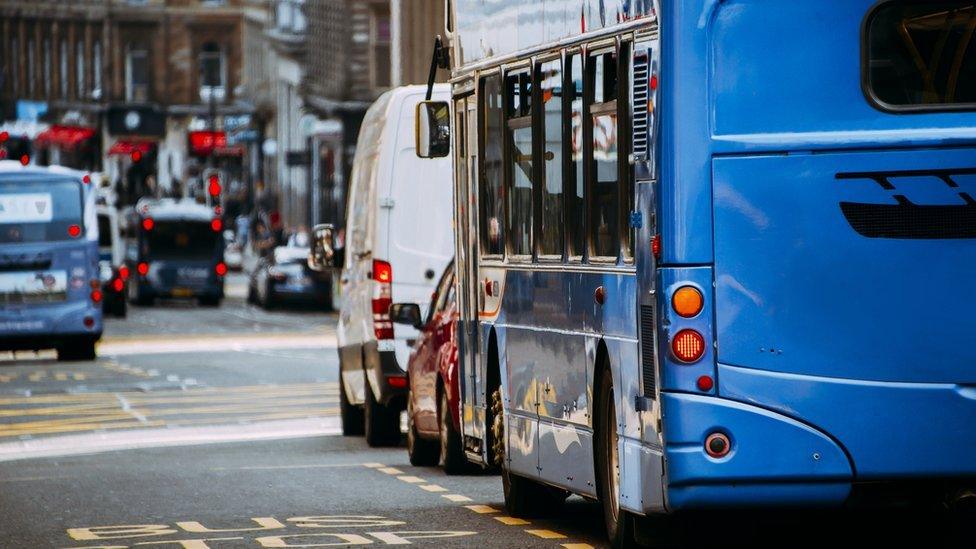
- Published1 June 2023
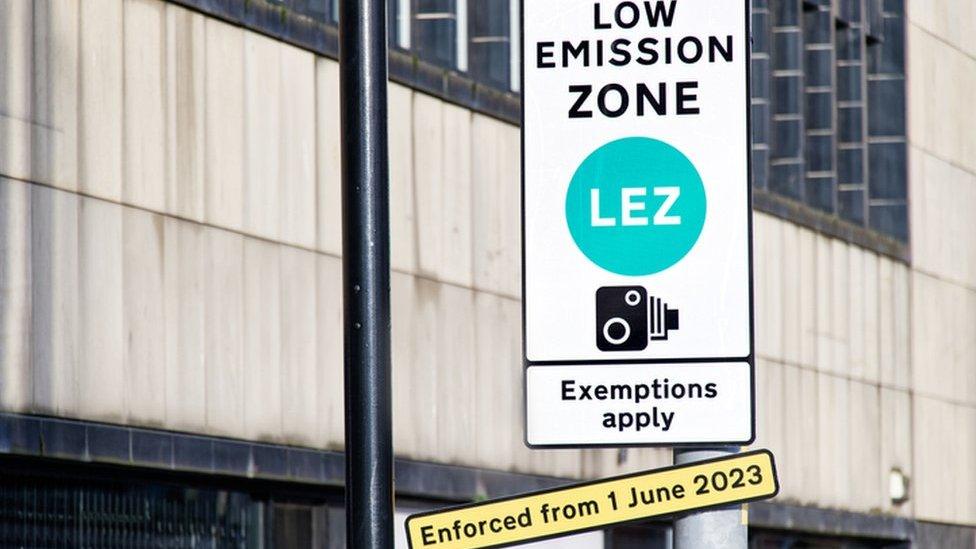
- Published1 June 2023
